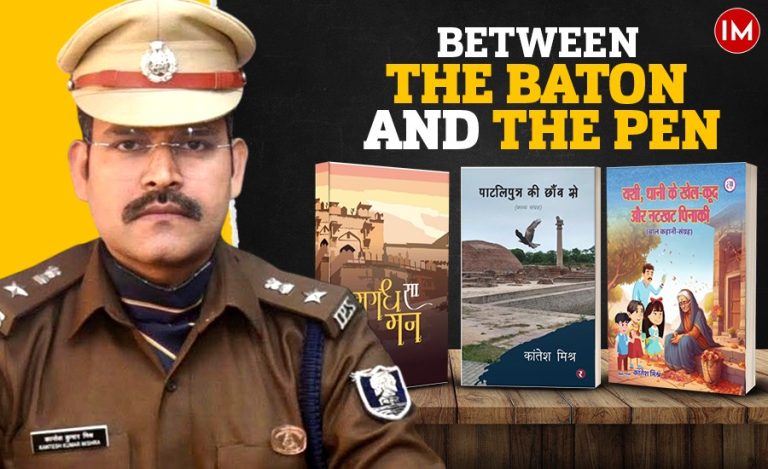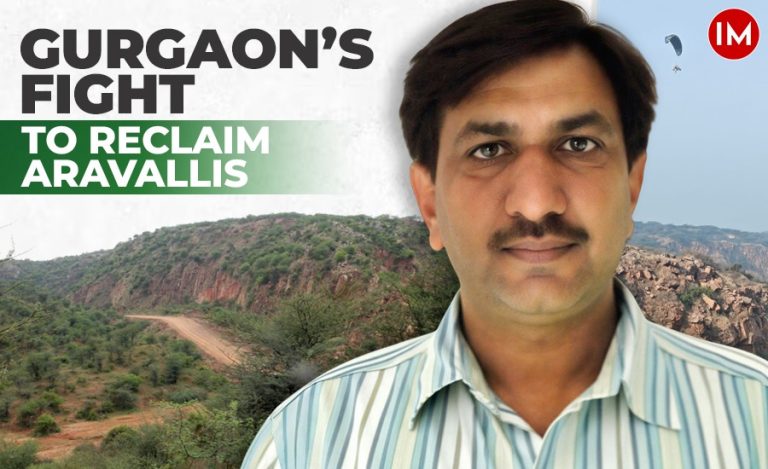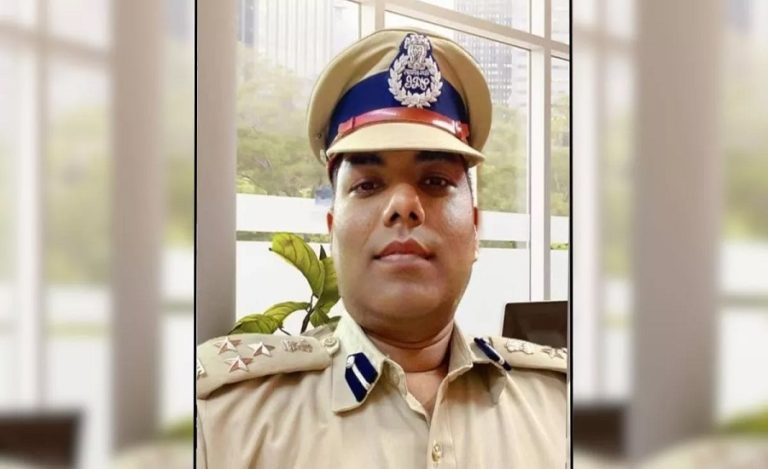Tukaram Mundhe’s journey from a farmer’s son in a small village of Maharashtra to one of the most talked-about IAS officers in the country is nothing short of extraordinary. Known for his strict discipline, ethical governance, and people-first approach, he has become a household name across Maharashtra. Popularly referred to as a “People’s Officer”, “Youth Icon”, “Waterman of Maharashtra”, and even “People’s Commissioner”, Mundhe has earned admiration as much for his integrity as for his fearless approach to public service.
What sets him apart is not just his professional record but also the personal journey that shaped his values. From working on farms as a child to securing an all-India rank of 20 in the UPSC examination, his story continues to inspire countless young Indians who dream of bringing change through public service. IAS Tukaram Mundhe (2005 batch, Maharashtra cadre) is currently posted as Secretary, Divyang Welfare Department, Mumbai.
HUMBLE BEGINNINGS IN BEED DISTRICT
Born in Tadsonna, a small village in Beed district, Tukaram Mundhe grew up in a farming family that struggled to make ends meet. Agriculture was the family’s only source of income, and debt to local moneylenders added to their hardships. As a child, he worked in the fields alongside his parents—ploughing, sowing, watering crops, and selling vegetables in the weekly market.
His daily routine was far from ordinary. Power supply in the village was erratic, forcing him to wake up at 2 a.m. to water plants when electricity returned. After school, he went back to farming until evening, leaving little room for play or leisure. Looking back, Mundhe says he never felt bitter about these responsibilities. Instead, he accepted them as part of life. “My mother was doing it, my father was doing it, so I was naturally inclined to do it. And I don’t think I did it grudgingly. I did it willingly,” he recalls.
This early exposure to discipline, honesty, and responsibility would later define his career in administration.
INSPIRED BY FAMILY AND DETERMINED TO SUCCEED
The turning point came from his elder brother, the first graduate and civil servant from their village, who became Mundhe’s role model. When asked if he wanted to become a collector, a young Tukaram agreed without even fully understanding what the role entailed.
After completing schooling in his village, he moved to Aurangabad for higher studies—a cultural shock for a boy who had never seen a movie theatre or read a newspaper. He pursued graduation in History, Political Science, and Sociology at Government College of Arts & Science, Aurangabad, and later enrolled for post-graduation while preparing for the UPSC examination.
His journey was far from smooth. He failed to clear the UPSC Mains twice, missed the final selection in his third attempt, and yet did not give up. Alongside preparation, he qualified for JRF-NET and pursued research in Political Science at Pune University, supporting himself through the scholarship. In 2001, he cleared the Maharashtra Public Service Commission (MPSC) exam, joining as a class-II officer.
In his final UPSC attempt in 2004, determination paid off. He secured an all-India rank of 20 and entered the prestigious Indian Administrative Service. The moment was celebrated not just by him but by students across rural Maharashtra who saw his success as proof that determination and hard work could break barriers.
EARLY DAYS IN SERVICE
Mundhe was allotted the Maharashtra cadre and began his probation in Solapur. Right from the beginning, he displayed his uncompromising style of work. Within days of taking charge, he raided an illegal bar owned by a powerful politician. Soon, he took on the sand mafia, corruption rackets, and encroachments, earning both praise from citizens and resistance from vested interests.
During his stint as Chief Executive Officer in Barshi, he launched a demolition drive against unauthorized structures. Even when faced with threats of self-immolation and media pressure, he refused to back down. To guide his decisions in such challenging situations, he devised a simple three-point checklist: every action must be legal, morally correct, and in public interest. If two of these conditions were satisfied, including legality, he went ahead without hesitation.
This framework became the cornerstone of his decision-making throughout his career.
CONSTANT TRANSFERS
Over the course of 19 years in service, Tukaram Mundhe has faced 23 transfers—making him one of the most frequently transferred IAS officers in India, drawing comparisons with Haryana’s Ashok Khemka. Most officers serve for two to three years in one posting; Mundhe has rarely had that luxury.
The reason is clear: his no-nonsense approach often clashes with political interests. While citizens admire his honesty, his refusal to compromise has made him unpopular among some sections of the establishment. Despite this, he has never wavered from his principles.
From Solapur to Jalna, Washim to Nagpur, his track record speaks volumes. Whether it was improving water supply in Jalna, breaking the PDS nexus, reducing teacher absenteeism in Nagpur, or imposing heavy fines on illegal sand miners in Deglur, his initiatives have had a lasting impact on governance.
THE “TUKARAM MUNDHE EFFECT”
Mundhe’s working style is hands-on. He is known for surprise visits to government schools, hospitals, and even riversides. Such inspections often expose negligence and force systems to improve overnight. Locals call this the “Tukaram Mundhe Effect”—a phrase that reflects both fear and respect for his uncompromising standards.
His ability to connect directly with people has also earned him admiration. He is seen as a “People’s Officer” who listens to grievances, ensures transparency, and works to strengthen public trust in governance.
AWARDS AND RECOGNITION
For his work, Tukaram Mundhe has received multiple awards at state and national levels, including the National Award for Social Justice and Empowerment and recognition as the Best Collector. But beyond the accolades, it is his reputation for honesty and dedication that remains his biggest achievement.
PHILOSOPHY OF GOVERNANCE
Mundhe’s views on governance are straightforward. He often says, “If I cannot transform systems, if I cannot give citizens leadership and motivation, then who else can?”
He believes corruption begins with individuals. “When you say India is corrupt, you are saying you are corrupt. You can be the torchbearer by not being a part of corruption. Preventing others may be difficult, but not being a part of it is always possible,” he emphasizes.
His vision of the future is built on ethical leadership, participatory governance, and sustainable development. He strongly advocates for young leaders to embrace values-driven leadership and to actively shape an equitable society.
The frequent transfers, political resistance, and even death threats have not dampened his spirit. Instead, each challenge has reinforced his commitment. He often reminds himself of the responsibility that comes with the IAS tag: to lead, to reform, and to inspire.
As he says, “I ask myself, if I cannot, who else can?”
LEGACY OF INTEGRITY
From a child laboring on farms to one of India’s most admired bureaucrats, Tukaram Mundhe’s story is an example of how honesty, discipline, and hard work can transform not just an individual’s life but also entire communities.
He continues to embody the qualities citizens yearn to see in public life—fearlessness, fairness, and accountability. In an era where compromise is often the easier path, his career is proof that standing firm on principles may be difficult, but it is always worth it.

































